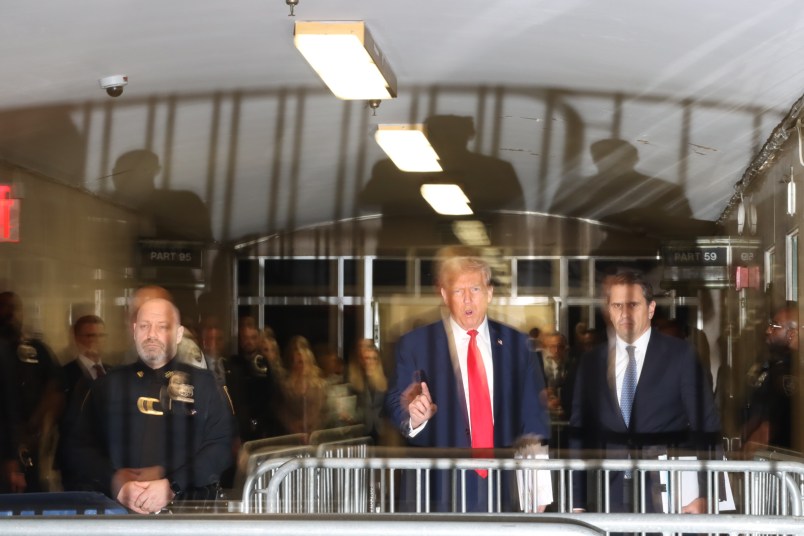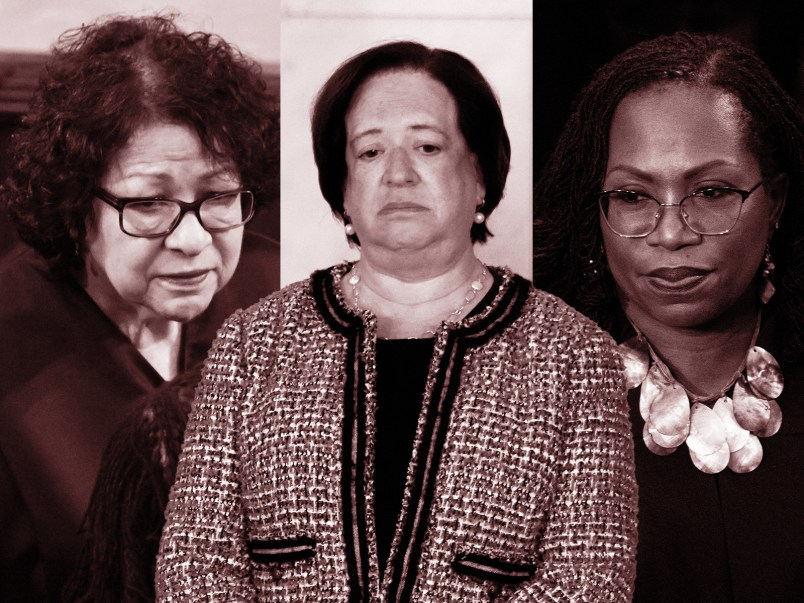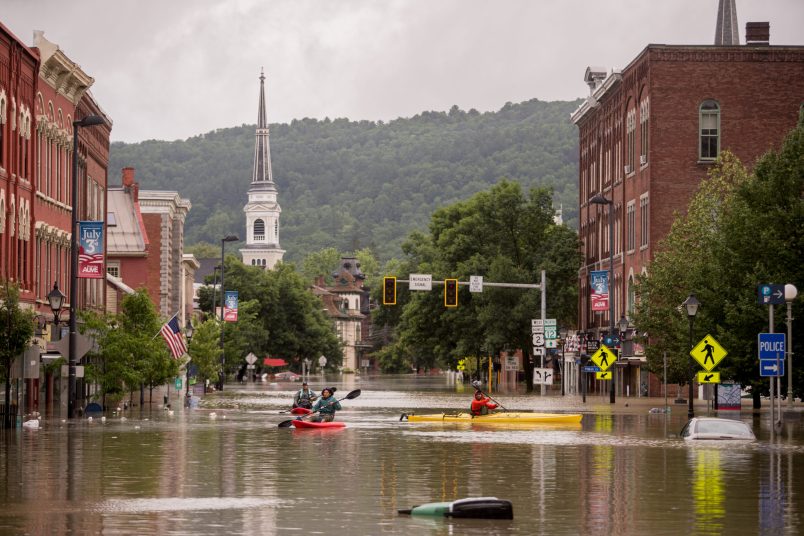Testifying at a Senate hearing this week, Arizona Secretary of State Katie Hobbs (D) detailed one of the many threats her office received in the aftermath of the 2020 election.
Someone called the office, Hobbs recalled, said she deserved to die, and then asked what she was wearing that day — “So she’ll be easy to get.”
That was one of several such threats described by high-ranking officials at a Senate Rules Committee hearing Tuesday, part of a year-long trend kicked off by Donald Trump’s lies about a stolen election.
But more than her own safety, Hobbs, who’s also a candidate for governor, said she was worried about public servants down the food chain: County supervisors who were mailed orange prison jumpsuits, or poll workers who faced armed crowds as they tried to count ballots.
“We’re already seeing high turnover among elections staff, and I fear that many more will reach a breaking point and decide that this line of public service isn’t worth it,” she said.
At Hobbs’ own office, the elections division team has had six full-time staff out of 11 leave since the 2020 election, Deputy Communications Director Sophia Solis told TPM. That’s compared to just two staffers who left in the year leading up to that election.
“Departing team members have shared that the primary reason for leaving was the stressful nature of the current elections environment, including post-2020 harassment, the pandemic, and a lack of resources to tackle the growing amount of work (which was compounded by the first two factors),” Solis said.
And they’re not alone. A year after the tumultuous 2020 election, states and localities across the country are now holding another round of elections, for everything from school boards and mayorships to governor’s mansions in New Jersey and Virginia. But election offices across the country have seen an increasing number of retirements, Donald Palmer, chair of the U.S. Election Assistance Commission, told TPM in a statement.
The Republican stronghold of Hood County, Texas, for example, recently lost its elections administrator after a months-long effort from Trump supporters to force her out. In contrast to when she started her career more than a decade go, “now we are made out to be the bad guys,” former administrator Michele Carew told the Texas Tribune and ProPublica.
In San Luis Obispo County, California, Clerk-Recorder Tommy Gong announced in June that he was leaving for a similar job in another county shortly after being called a member of the Chinese Communist Party and receiving a note that said, “We The People are coming for your corrupt head.” Gong said that he was moving to be closer to his elderly parents.
Threats and harassment, though notable this past year, aren’t the only motivators for leaving: Roxanna Moritz, five months after winning a fourth term as Davenport, Iowa’s elections officer, told The New York Times in June that she was leaving due to a new law criminalizing certain errors by elections officials.
A spokesperson for election department in Maricopa County, Arizona — the subject of the sham “audit” that spread doubts about the 2020 election — told TPM the county’s hiring difficulties seem to reflect broader economic trends. It’s been hardest to recruit truck drivers and IT help desk technicians, seemingly due to the broader demand for those positions, Election Department Communications Director Megan Gilbertson said.
Kentucky Secretary of State Michael G. Adams (R) noted at Tuesday’s hearing that two “exhausted” county clerks in his state left their posts in the middle of their terms last year, and that he’d heard from 15 more clerks who planned to retire next year, a number he believed would continue to grow.
“That’s an unusually large number of retirements,” Adams said.
This exodus brings up a troubling possibility — that new election officials, seasonal staff and volunteers radicalized by Trump’s lies about the 2020 election might try and fill the void.
“That’s a double-edged problem,” said Rick Hasen, a legal scholar and professor at the University of California Irvine School of Law. “On the one hand, you’re losing the competent people, on the other hand, you’re potentially bringing in more people who are not committed to the fairness of the process, but have an allegiance to a particular candidate.”
‘Tired Of Being Screamed At’
Shortages of election workers, particularly the seasonal volunteers and paid poll workers that help check in voters and tabulate ballots, aren’t anything new in elections. That was particularly the case last year, when COVID-19 meant that many elderly poll workers, who make up the core of the election workforce, opted to stay home.
Palmer said the Election Assistance Commission hoped to relaunch its National Poll Worker Recruitment Day next year. But in 2021, an “off” year for federal elections except for a handful of special races, poll worker interest is expectedly down.
“It’s just the way that things go,” said Tammy Patrick, a senior advisor to the Elections program at Democracy Fund, referring to poll worker interest in off-cycle elections. “Some of the traditional tension points that we see, we see every election cycle, it’s just in varying degrees.”
Still, there is something lingering in the air in the aftermath of Donald Trump’s attempt to steal a second term — an attempt that relied, prior to the Capitol attack, on pressuring elections officials and targeting poll-workers with harassment.
After Crawford County, Pennsylvania’s board of elections warned earlier this month that the county was still in need of poll workers for its Nov. 2 elections, one county commissioner told Erie News Now that “poll workers have told us they’re tired of being screamed at.”
“In today’s world, a voter will walk in and they’ll yell at a poll worker for something they don’t like on the national level,” the commissioner, John Christopher Soff, said.
New Jersey Gov. Phil Murphy (D) addressed his state’s shortage — caused in part by the launch of early in-person voting — the old-fashioned way: signing an executive order bumping a day’s pay for poll workers from $200 to $300.
In Ohio, a recent push from Secretary of State Frank LaRose (R) seems to have avoided the worst-case scenario, in which Ohio voters might have been short necessary poll workers. LaRose’s trick? He went on TV with a “Help Wanted” sign.
This post has been updated.










